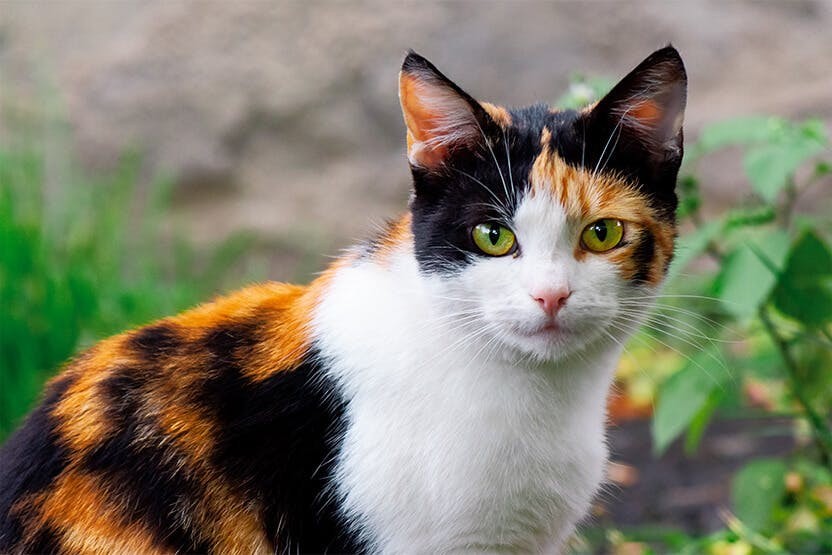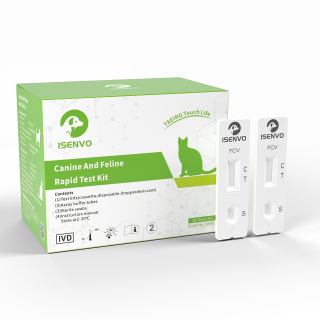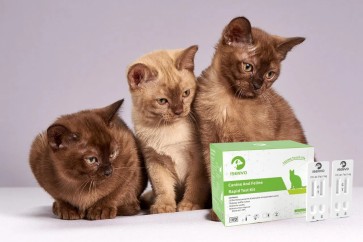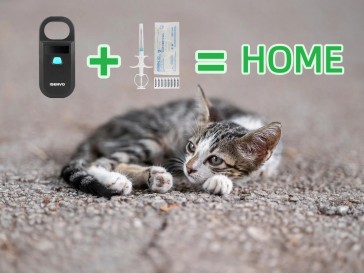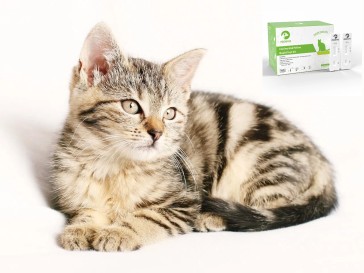As a responsible cat owner, understanding common feline diseases and their prevention is essential to keeping your furry companion healthy and safe. Feline Calicivirus (FCV) is a highly contagious virus that primarily affects a cat’s respiratory system and oral health. While not zoonotic (it cannot spread to humans), FCV can cause significant illness—especially in kittens, older cats, or immunocompromised pets.
This article explores how FCV affects cats, how it spreads, its symptoms, and the importance of rapid testing using tools like the Taeing FCV Ag Rapid Test Kit to ensure timely care and prevent outbreaks.
What Is Feline Calicivirus (FCV)?
FCV is a common viral infection in cats that targets the upper respiratory tract and oral tissues, often leading to sneezing, nasal discharge, and painful mouth ulcers. Unlike the human flu or COVID-19, FCV is species-specific, affecting only felines. It’s especially prevalent in multi-cat environments such as shelters, catteries, or pet boarding facilities.
Though many healthy adult cats can recover with supportive care, FCV can cause severe complications in vulnerable cats and even lead to pneumonia or systemic infections.
How Is FCV Transmitted?
FCV spreads through:
✅ Aerosolized droplets – Sneezing or coughing can release infectious particles.
✅ Saliva and nasal secretions – Shared food/water bowls or grooming can transmit the virus.
✅ Contaminated surfaces – Blankets, litter boxes, or hands/clothing of caretakers.
✅ Close contact – Living with or being exposed to infected cats in tight quarters.
Symptoms of FCV Infection
Cats infected with FCV may show:
Respiratory Symptoms
Sneezing
Runny nose
Coughing
Nasal congestion
Oral and Systemic Symptoms
Mouth ulcers (especially on the tongue and gums)
Drooling or difficulty eating
Fever
Lethargy
Swollen joints or limping (less common)
⚠️ Severe Cases:
Viral pneumonia
Ulcerative stomatitis
Difficulty breathing
Secondary bacterial infections
Death (rare but possible in virulent strains)
How to Prevent FCV Infection
1. Vaccination
The FCV vaccine is part of the core vaccine protocol for kittens and adult cats.
Boosters may be recommended, especially for cats in high-risk environments.
2. Hygiene & Sanitation
Clean and disinfect litter boxes, food bowls, and bedding regularly.
Use veterinary-approved disinfectants effective against FCV.
Wash your hands and change clothes after handling unfamiliar or sick cats.
3. Minimize Exposure
Avoid introducing unvaccinated cats into your household.
Isolate new cats until they test negative for common viruses.
Choose reputable boarding facilities with strong infection control protocols.
4. Support Overall Health
Feed a nutritious, balanced diet.
Keep up with wellness checkups and parasite prevention.
Reduce stress, which weakens immunity and increases susceptibility.
5. Rapid Testing (e.g., Taeing FCV Ag Rapid Test Kit)
Provides fast, accurate detection of FCV antigens from oral or nasal samples.
Ideal for use in veterinary clinics, shelters, or by breeders.
Enables early diagnosis and isolation of infected cats, reducing the risk of spread.
What to Do If Your Cat Has FCV?
Isolate – Keep the infected cat away from other pets to prevent transmission.
Hydrate – Make sure your cat stays hydrated. Use a pet water fountain or offer broth if needed.
Soft Diet – Offer soft, palatable foods (e.g., wet food or meat baby food) to avoid irritation from mouth ulcers.
Vet Visit – Seek veterinary care if symptoms worsen or persist. Antibiotics may be prescribed for secondary infections.
Monitor Closely – Watch for signs of difficulty breathing or refusal to eat, which may require urgent intervention.
Final Thoughts: Early Detection Matters
FCV can be stressful for both pets and owners, but with vaccination, hygiene, and prompt diagnosis, the risk can be dramatically reduced. TheTaeing FCV Ag Rapid Test Kit is a valuable tool for early detection, especially in high-density environments where viral spread can be rapid.
Pro Tip: Always consult your veterinarian if your cat shows symptoms of upper respiratory infection—early treatment can lead to faster recovery and fewer complications!

